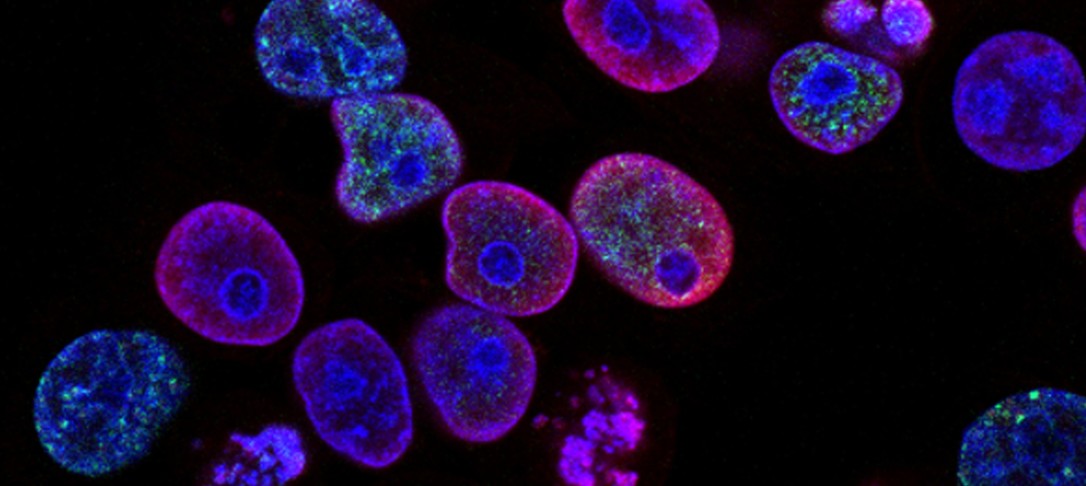
Our series of webinars is back, brought to you by the Cancer Research UK Convergence Science Centre at Imperial College London and The Institute of Cancer Research, London. Researchers across the two organisations will discuss key challenges facing cancer research and opportunities for new convergence science approaches to address these.
Hosted by the Convergence Science Centre’s Scientific Director Professor Axel Behrens, the series aims to support the Centre’s mission to facilitate collaboration between traditionally separate and distinct disciplines.
Please join us on Thursday 03rd March, from 15.00-16.00, for a talk from:
Prof Clare Isacke – Division of Breast Cancer Research, The Institute of Cancer Research and The Royal Marsden NHS Foundation Trust
“Targeting the tumour stroma”
The tumour microenvironment is characterised by the infiltration and activation of stromal cells, setting up the establishment of reinforcing tumour-stroma crosstalk pathways and the promotion of an immunosuppressive environment. The goal of our laboratory is to identify strategies to effectively target key tumour-microenvironment crosstalk pathways to limit metastatic relapse and enhance the efficacy of tumour targeting agents. This seminar will focus on the role of the cancer-associated fibroblasts (CAFs) and activated pericytes (the mesenchymal support cells associated with blood vessels) in breast cancer progression and the therapeutic strategies we are developing, including CAR T-cells and antibody-drug conjugates (ADCs), to target these activated stromal cell populations.
&
Prof James Moore Jr – Department of Bioengineering, Imperial College London
“Transport Phenomena into and through Lymph Nodes”
Once antigens enter the body, unintended or as part of a vaccination, information needs to be transported to lymph nodes, where immune cells are concentrated to facilitate adaptive immunity. Transporting antigen information is the responsibility of the prenodal lymphatic system, consisting of porous initial lymphatics and actively pumping collecting lymphatic vessels. Once inside the node, fluid flow and solute transport are crucial for delivering the information to specific cell types. Lymph node swelling is commonly observed during immune response, yet it is not known what benefits this provides for immunity. The swelling is likely a mix of fluid balance shifting and increasing cell numbers, but the time scales for these phenomena are potentially very different. We have initiated a series of experiments and numerical simulations to unravel some of these mysteries. Our results suggest targeting lymphatic pumping and the effector T cell retention associated with swelling offers ways to modulate effector T cell responses in, for example, immuno-suppressed patients and optimisation of vaccine design.
Prof Clare Isacke
Prof Isacke studied for her BA in Biochemistry and DPhil in Developmental Biology at the University of Oxford. She then moved to Tony Hunter’s laboratory at the Salk Institute in San Diego to work on growth factor receptor signalling as a postdoctoral fellow. On returning to England, she started her own research laboratory first in the Department of Biochemistry and then in the Department of Biology at Imperial College London. In 2001, Prof Isacke moved to The Institute of Cancer Research in London to take up an appointment as Professor of Molecular Cell Biology in the Breast Cancer Now Research Centre. In 2013, she was appointed Academic Dean at the ICR. Her research aims to identify the processes by which tumour cells recruit non-cancerous cells during metastasis.
Prof James Moore Jr
Prof. Moore joined Imperial College as the Bagrit Chair in Medical Device Design in 2013. His research focuses on the biomechanics of the formation and treatment of atherosclerosis and cancer, with a particular interest in the pumping characteristics of the lymphatic system, transport of nitric oxide, antigens, and chemokines. Along with his funding from government, charity, and industry, Prof. Moore is an active inventor of medical devices and has founded multiple startup companies.
Registration
To receive information about how to access this event please email icr-imperial-convergence.centre@imperial.ac.uk
Please note: This webinar is exclusively available only to colleagues across the Institute of Cancer Research, Imperial College London, the Royal Marsden Hospital and Imperial College Healthcare.